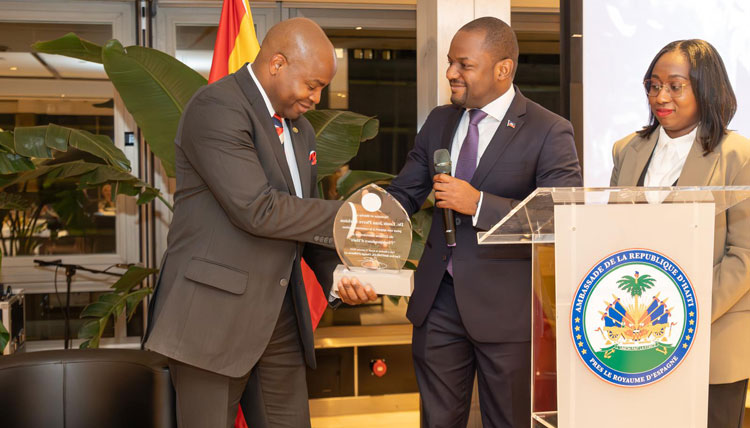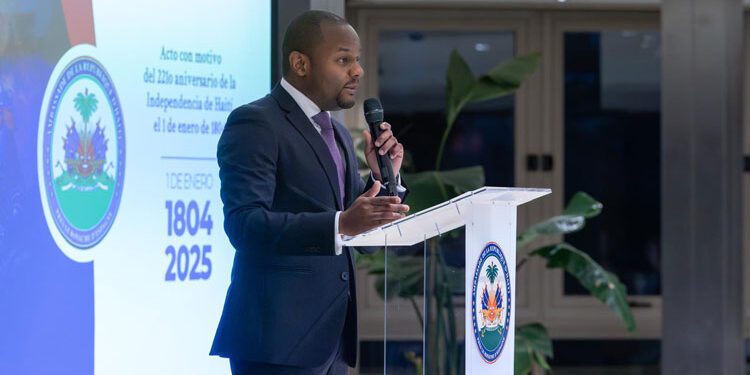Juan David Latorre
Last Monday, the Embassy of Haiti commemorated the 221st anniversary of its independence, which took place in the Hotel Meliá Princesa, which had as protagonist the professor Doctor Louis Jean Pierre, He gave a very interesting lecture on the history of Haiti and the Pumpkin Soup.
Carl-Eric Barthelus, Head of Business at the Haitian Embassy, opened the event with a speech of solidarity recalling “with deep sympathy for the many victims of the catastrophes which occurred in late 2024 and early 2025, particularly in Valencia and other Spanish cities caused by DANA, in California, in Ukraine and Gaza, in Azerbaijan, in Montenegro, etc., and especially to the many victims of the prevailing insecurity, as well as of the floods in Haiti.”
“Today, looking back, Carl-Eric Barthelus said, we are faced with a legacy that transcends the frontiers of time, a legacy forged by the courage, determination and unity of those who, more than two centuries ago, fought for freedom, the justice and dignity of his people. On this significant day, we remember the patriots and heroes who, under the leadership of visionary leaders like Jean-Jacques Dessalines, declared our nation’s independence and sent a clear and unwavering message to the world: The right to freedom and self-determination has no boundaries.”
The Haitian diplomat continued, stressing that “the Haitian Revolution, which began as a challenge to oppression and slavery, was a beacon of hope not only for the Caribbean but also for all the peoples of the world who were fighting for their fundamental rights. Haiti, in declaring its independence on 1 January 1804, not only became a symbol of resistance and courage but also reaffirmed the universal principles of freedom and equality”.
Carl-Eric Barthelus also referred to the current situation in Haiti. “Despite these turbulent times, he said, Haiti continues to demonstrate an admirable capacity for resilience and a tireless will to move forward. The independence we celebrate today should serve as a reminder not only of our history, but also of our collective responsibility to continue building a more prosperous, more equitable and united nation. As a nation, we must continue to promote the values that have given us strength over the centuries: solidarity, social justice, mutual respect and commitment to the well-being of all our citizens.”
Barthelus concluded by greeting “fraternally also the Spanish government, which has never spared its efforts in its support for Haiti, and which is always at our side, even in the most difficult moments. Cooperation between Haiti and Spain, which has been in existence for more than 70 years, remains stronger than ever, contributing both to education and other areas capable of contributing to the country’s socio-economic development. We are convinced that, with the group of friendly countries, we can continue to move forward, always inspired by the example of our ancestors and strengthened by commitment to the future of our nation”.
The conference was then opened by Professor Louis Jean Pierre, who gave a brief review of the years when the country gained independence and the most important events in the process, highlighting the prominent role played by women. He also commented on how the Pumpkin Soup, made by slaves but forbidden for them, became a symbol of freedom and since 1804, the year of Haitian independence, it is traditional to consume every day on 1 January.








